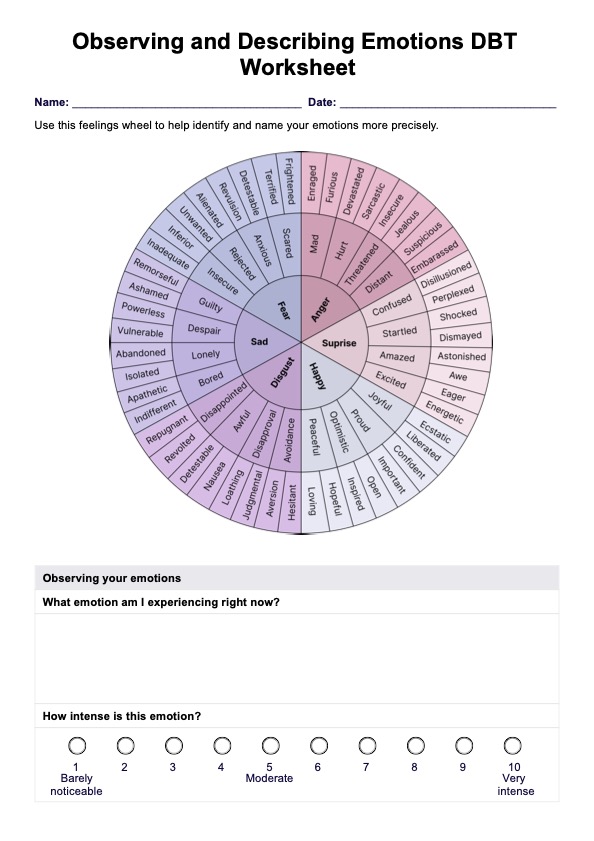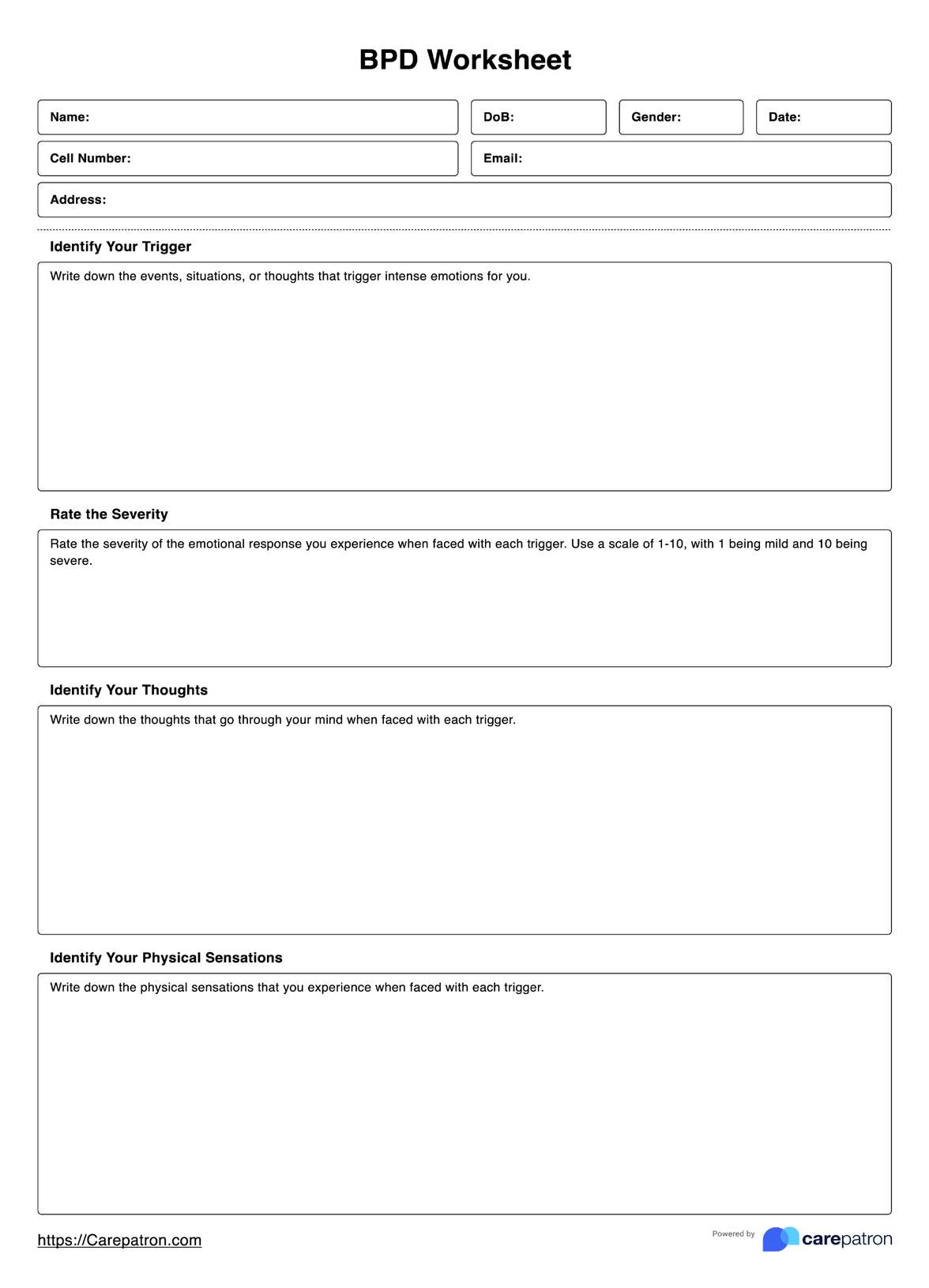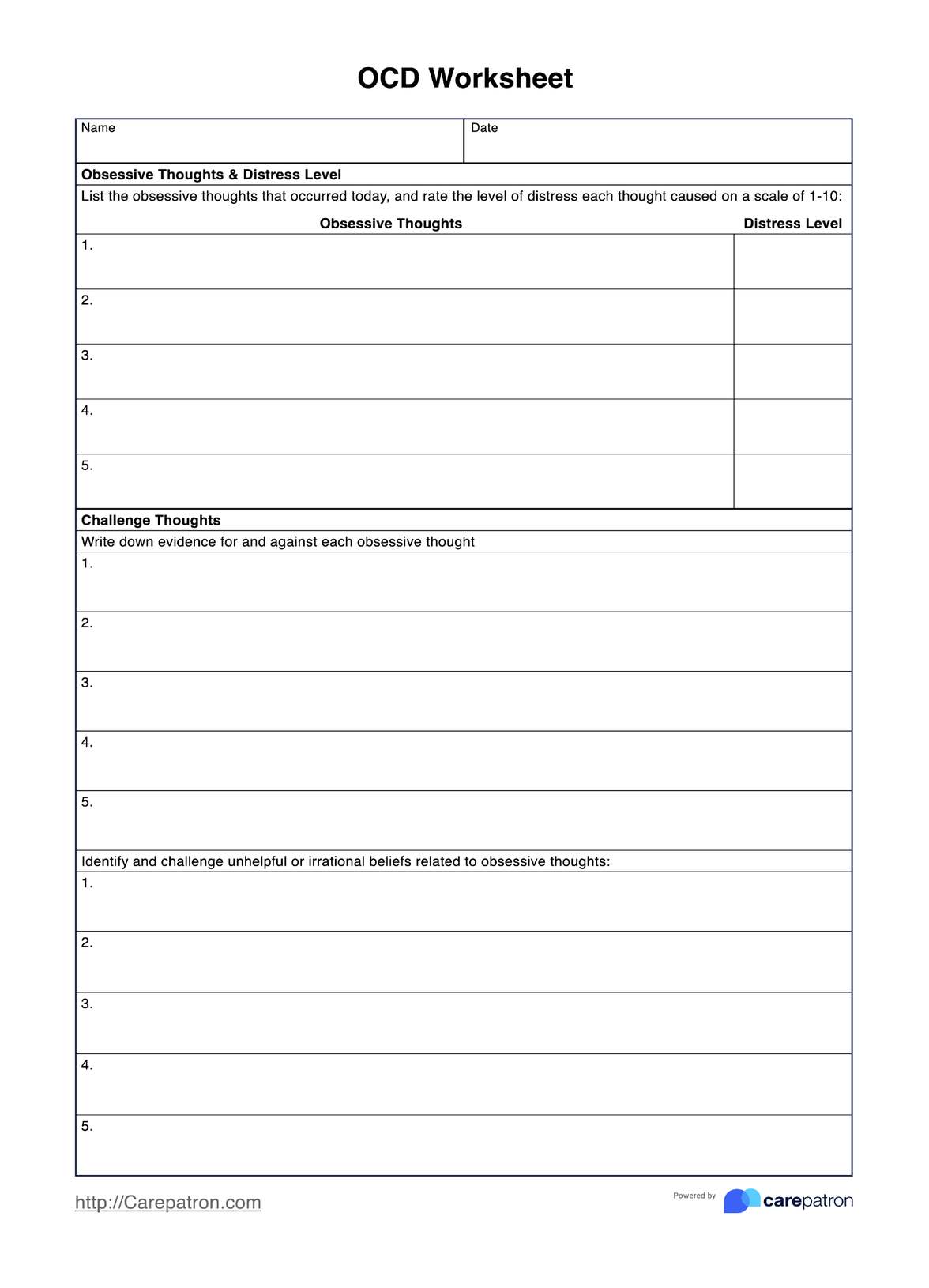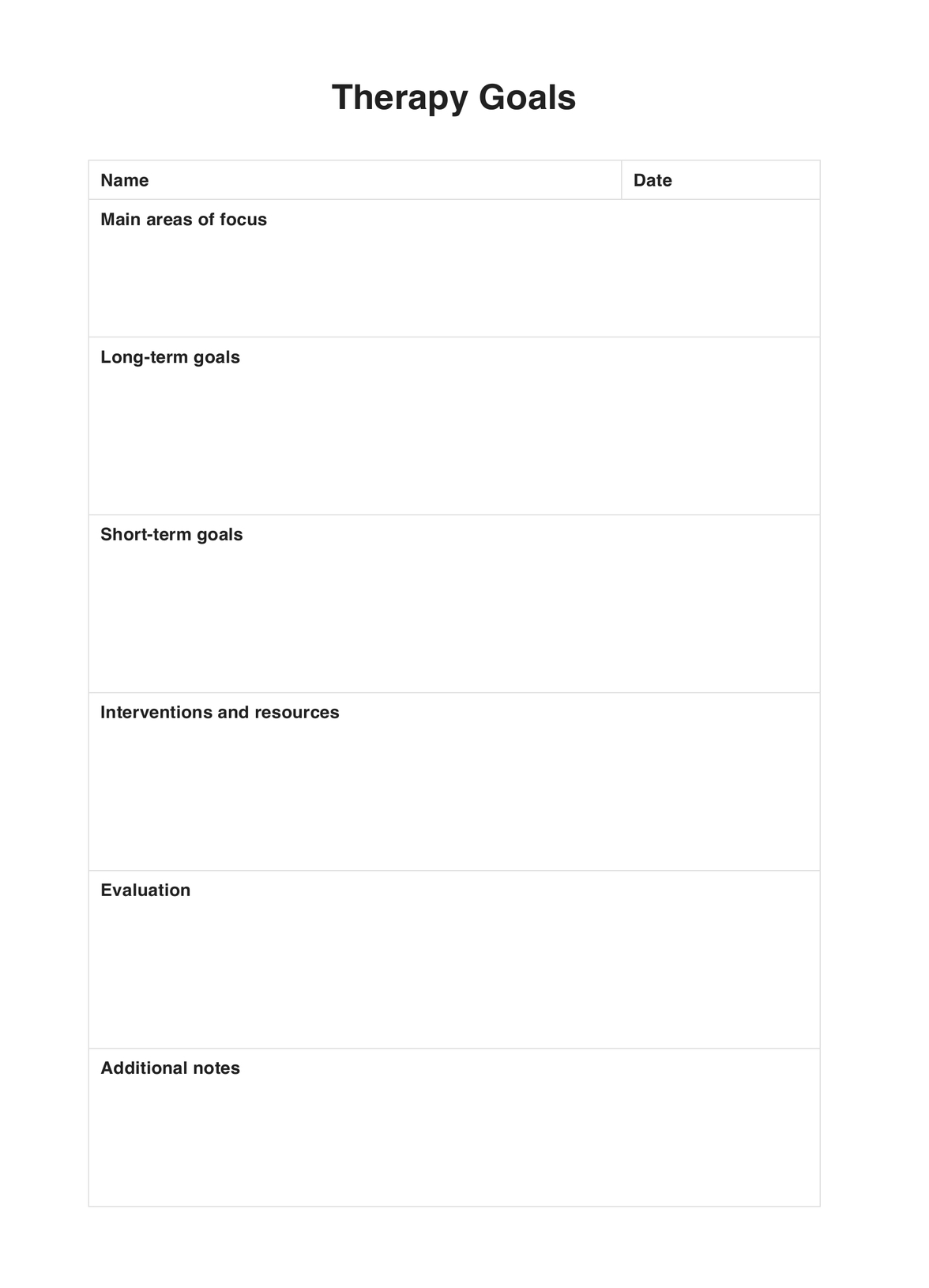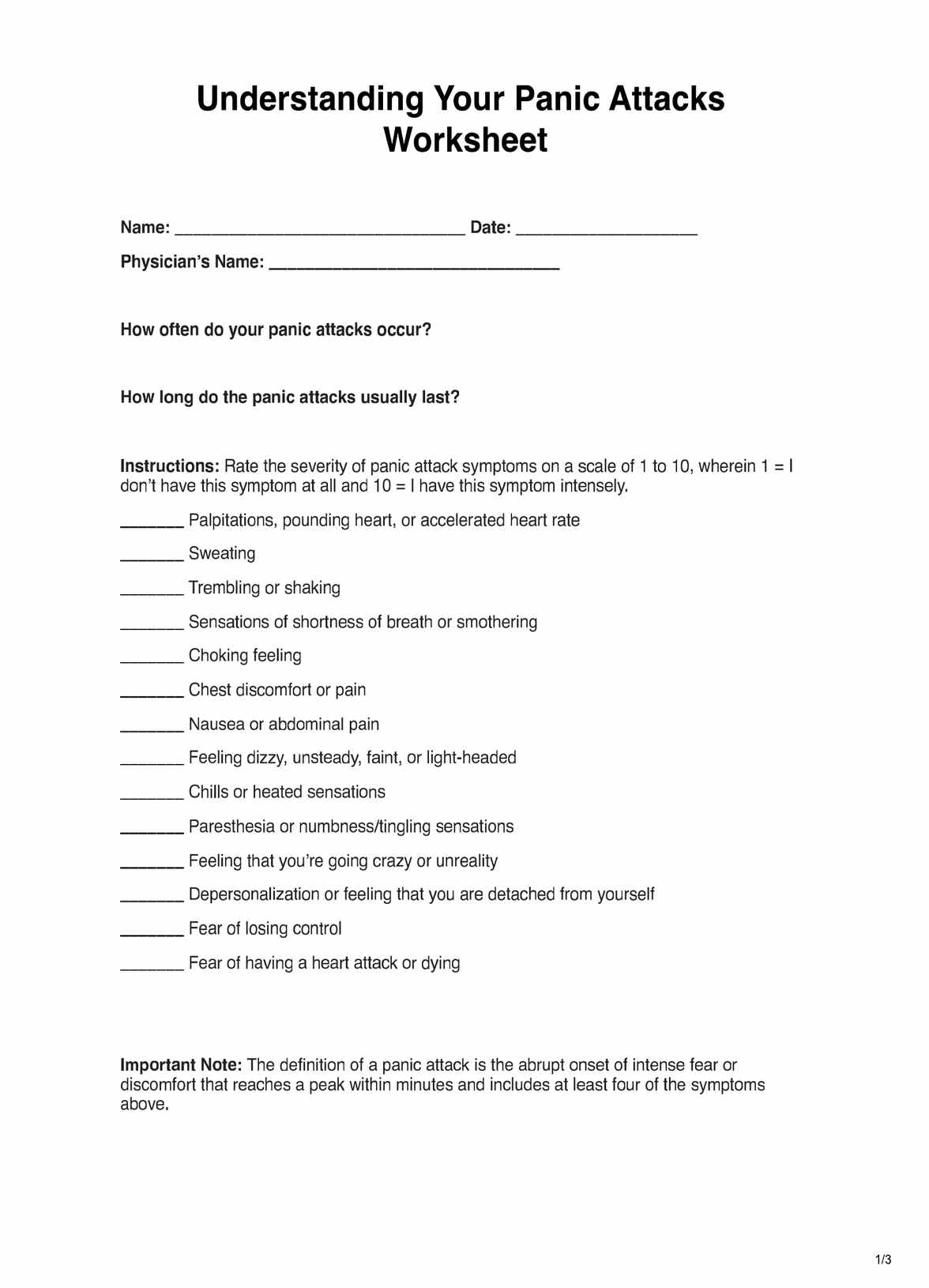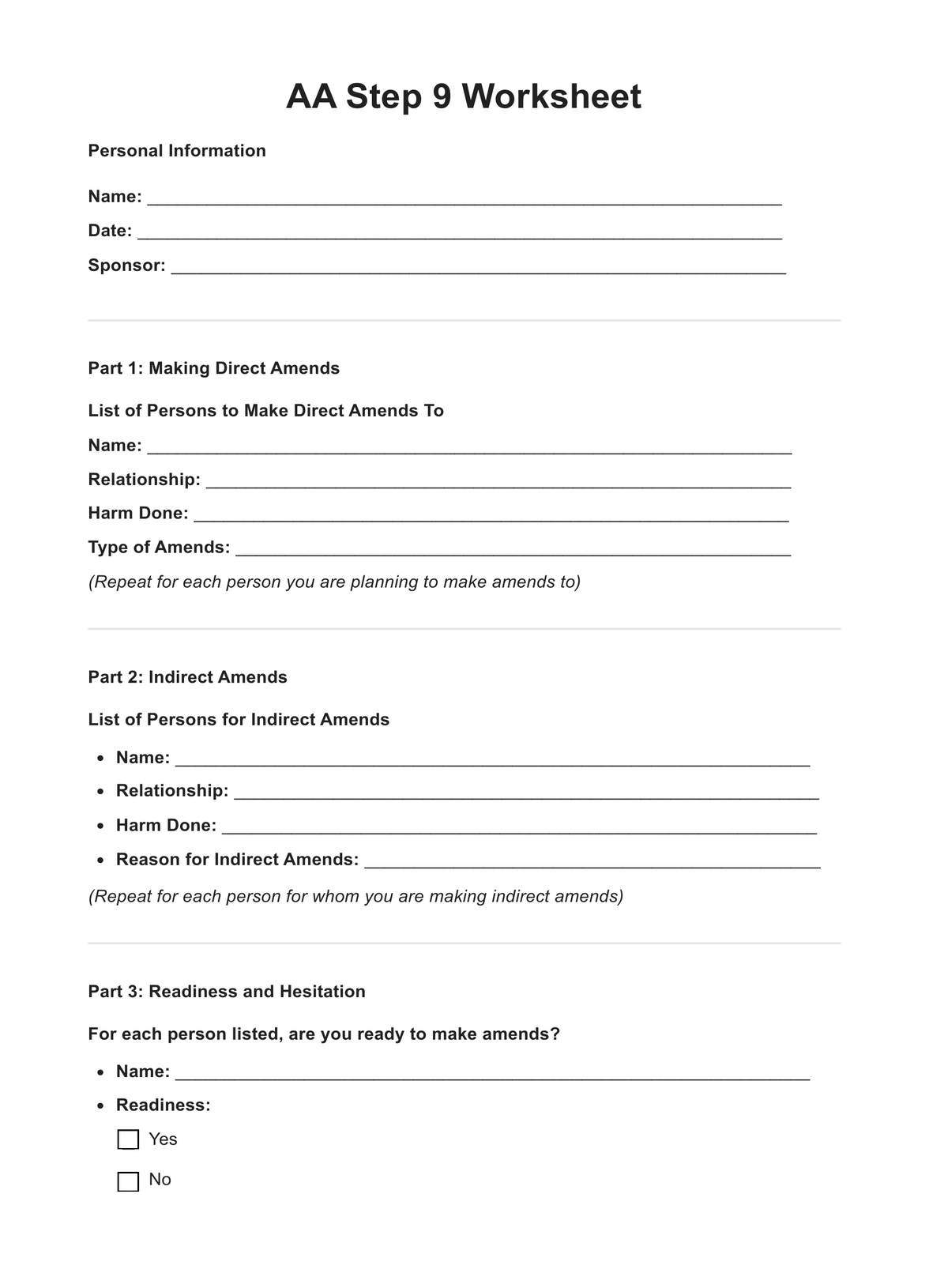Solution-Focused Therapy Treatment Plan
Need help creating Solution-Focused Therapy Treatment Plans? Download our free, customizable PDF template to get started.


What is a Solution-Focused Therapy Treatment Plan?
Solution-focused therapy is a psychotherapeutic approach that focuses on solutions rather than problems. Also referred to as solution-focused brief therapy (SFBT), it's based on the idea that, given the right environment and support, individuals can think for themselves and come up with possible solutions to their challenges.
The Solution-Focused Therapy Treatment Plan addresses both short-term and long-term issues. It helps clients identify their goals and create an action plan to achieve their desired future, emphasizing measurable and achievable objectives with set timelines. The therapist provides ongoing support and guidance throughout the therapeutic process to assist clients in reaching their goals.
Unlike other forms of therapy, solution-focused therapy does not dwell on past events or look for underlying causes of issues. Concerning mental health issues, a study on solution-focused therapy in treating major depressive disorder in adolescents suggests that it may enhance executive function while also alleviating depressive and anxiety symptoms (Chen et al., 2024).
It's like positive psychology, which focuses on present and future solutions using a miracle question. Solution-focused therapy can be especially helpful for those who feel stuck in a cycle of negative thoughts and behaviors, as it helps them find alternative ways to view their circumstances.
Solution-Focused Therapy Treatment Plan Template
Solution-Focused Therapy Treatment Plan Example
How does this solution-focused brief therapy treatment plan work?
Our free printable Solution-Focused Therapy Treatment Plan can be used to collaborate with clients and create an effective action plan. Here's how to get started:
Step 1: Access the free template
The Solution-Focused Therapy Treatment Plan can be downloaded using the link on this page or the Carepatron app. It is also available in our resources library.
Step 2: Discuss the approach with your patient
Before beginning, explaining the fundamental principles of solution-focused therapy and how they can be applied to your patient's unique situation is essential. Explain how the treatment plan works and then discuss the individual goals and positive change they want to achieve. You can couple this with a Solution-Focused Therapy Worksheet during therapy sessions to make them more engaging and meaningful.
Step 3: Create a plan of action
Once you've established the main objectives, it's time to create a plan of action for your patient. Fill out the template with your patient's steps to reach their goals. Remember to set realistic milestones and expectations.
Step 4: Monitor progress
It is essential to monitor your patient's progress as treatment progresses. Track the results of each session, note any areas where improvements have been made, and adjust the plan of action as needed.
Step 5: Celebrate successes
When your patient achieves a milestone or makes significant progress toward their goals, it is essential to recognize and celebrate these accomplishments. Celebrating success can motivate your patient to keep pushing forward and build momentum for continued growth.
When would you use this template?
This free Solution-Focused Therapy Treatment Plan template is ideal for therapists, counselors, psychologists, psychiatrists, social workers, and educators. The template helps keep clients engaged and ensures clear communication about expectations and progress. Specifically, you can utilize this template to:
Identify and prioritize goals
You can use the Solution-Focused Therapy Treatment Plan to identify and prioritize short-term goals that align with the client's long-term objectives. You can also track progress towards these goals over time.
Discuss barriers to success
Using the Solution-Focused Therapy Treatment Plan, you can address potential obstacles or challenges your client might encounter, such as a lack of self-esteem. This approach helps clients anticipate and prepare for these issues, preventing them from becoming roadblocks in their progress toward achieving their goals.
Foster collaboration between you and your client
Using this template will help foster collaboration between you and your clients, encouraging ongoing dialogue about their treatment plans. The aim is to empower clients to take ownership of their treatment and feel more in control of their progress.
Monitor progress
Using our free Solution-Focused Therapy Treatment Plan, you can track your client's progress toward their desired outcome. This helps keep them focused, motivated, and in control of their growth and development.
Benefits of free Solution-Focused Therapy Treatment Plan
Our free Solution-Focused Therapy Treatment Plan template is a great way to get started with goal setting using the solution-focused approach. Here are some of its advantages:
It's easy to use
The treatment plan has different sections to help you customize and create an action plan for your client. Furthermore, it's intuitively designed so that it can be easily edited and filled out.
It's extremely versatile
You can use this template to set goals for almost any type of therapy, from individual and group counseling to couples and family therapy. It can also be tailored to meet the needs of any particular client.
It helps define goals and objectives
This template allows you and your client to set specific and measurable goals that will be tracked throughout their treatment course. Defining these objectives ensures that everyone is working towards the same goals.
It encourages accountability
Using this template, you and your client will be held accountable for their progress. It provides a tangible view of what has been accomplished and what needs to be done.
Reference
Chen, H., Zhou, M., Han, L., Advaith Manoharasetty, Yu, Z., & Luo, H. (2024). Efficacy and executive function of solution-focused brief therapy on adolescent depression. Frontiers in Psychiatry, 15. https://doi.org/10.3389/fpsyt.2024.1246986
Commonly asked questions
Mental health professionals, such as psychologists, counselors, therapists, and social workers, commonly use Solution-Focused Therapy Treatment Plans.
Mental health professionals use Solution-Focused Therapy Treatment Plans to assess a client's current level of functioning, evaluate their long-term goals, and develop a step-by-step plan for how they will reach those goals. The goal is to provide clients with the necessary resources to achieve positive life changes.
You can store completed Solution-Focused Therapy Treatment Plans in an electronic health record (EHR) system or other secure storage platforms. This allows you and your client to easily access the plan and track progress over time. You can also use paper records if you prefer, but keeping them in a secure location is important.


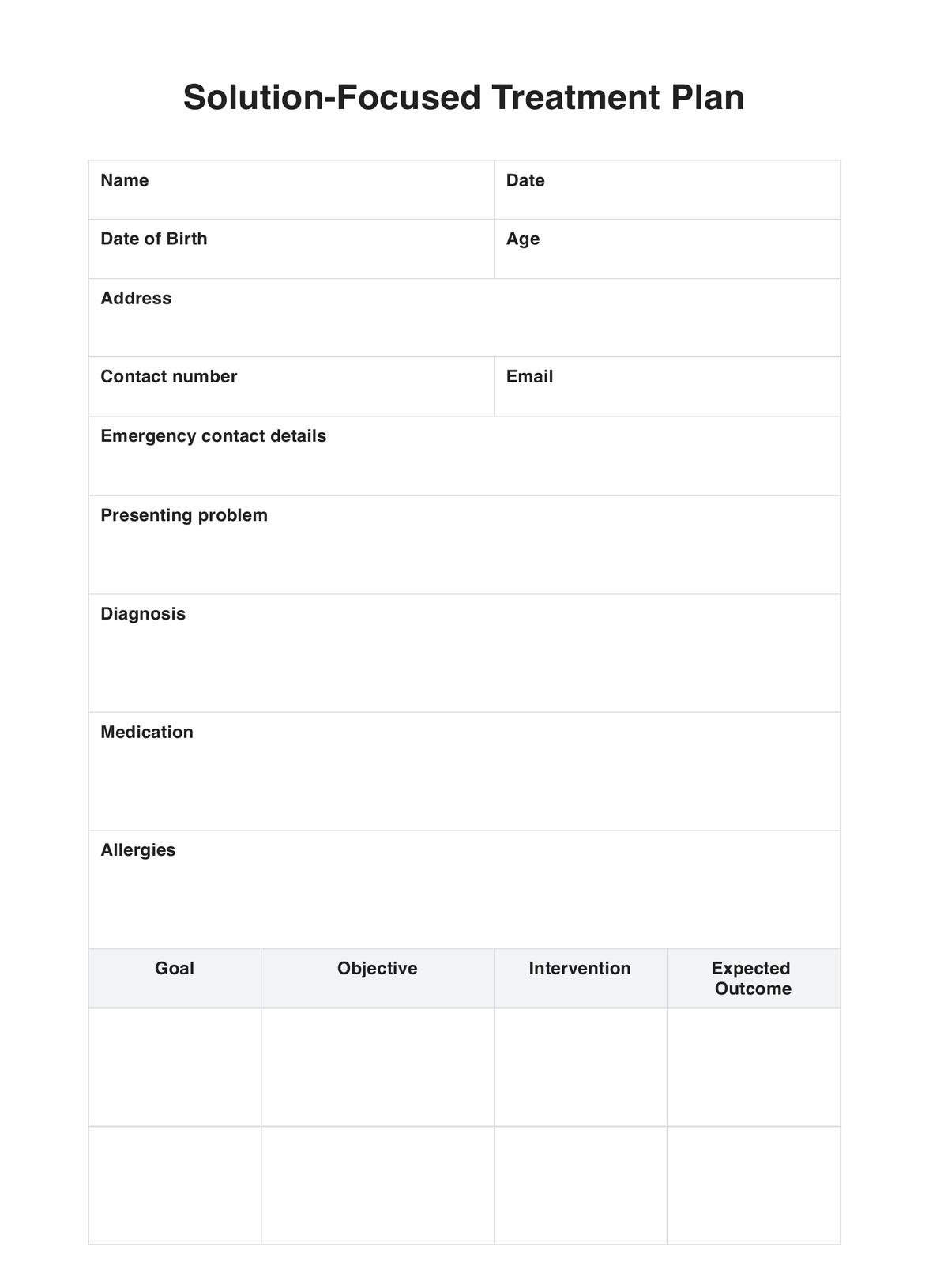
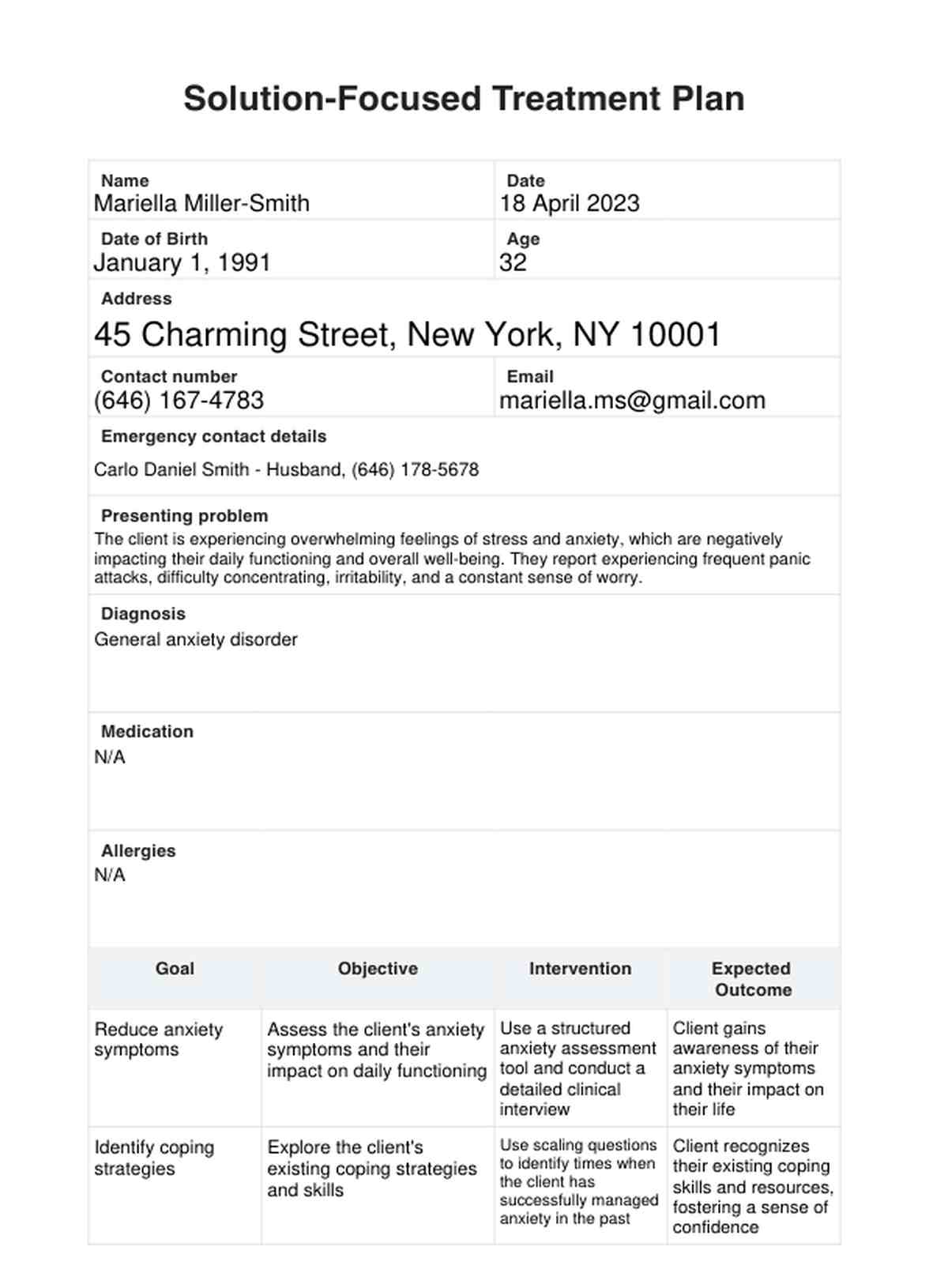

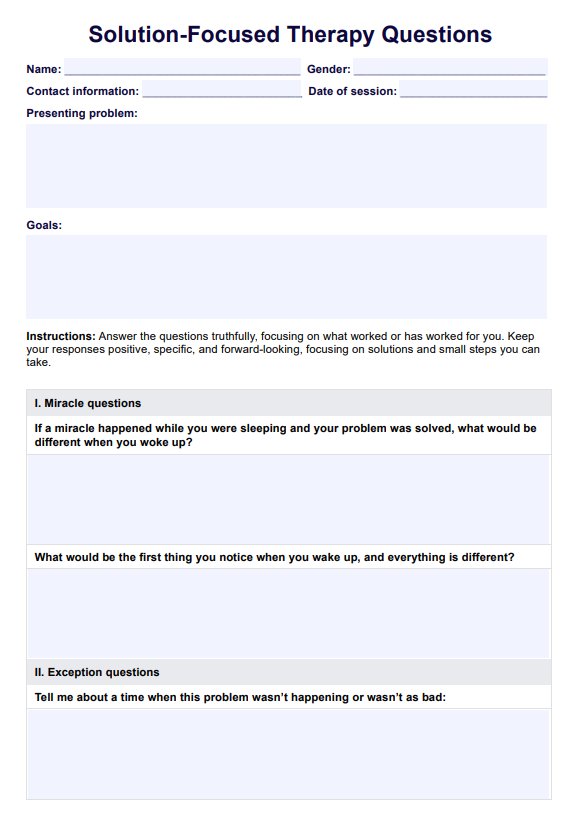
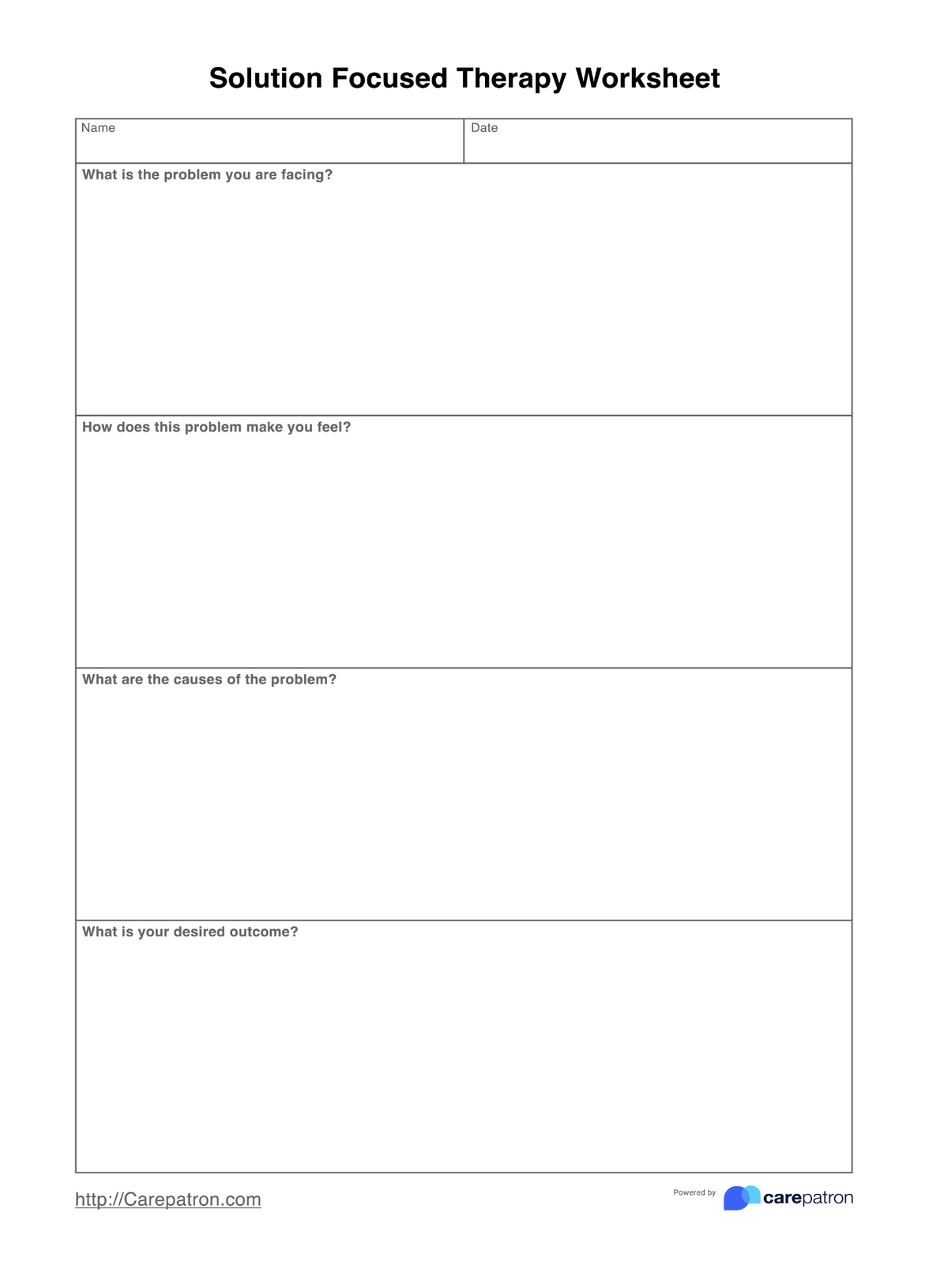














-template.jpg)





















































































